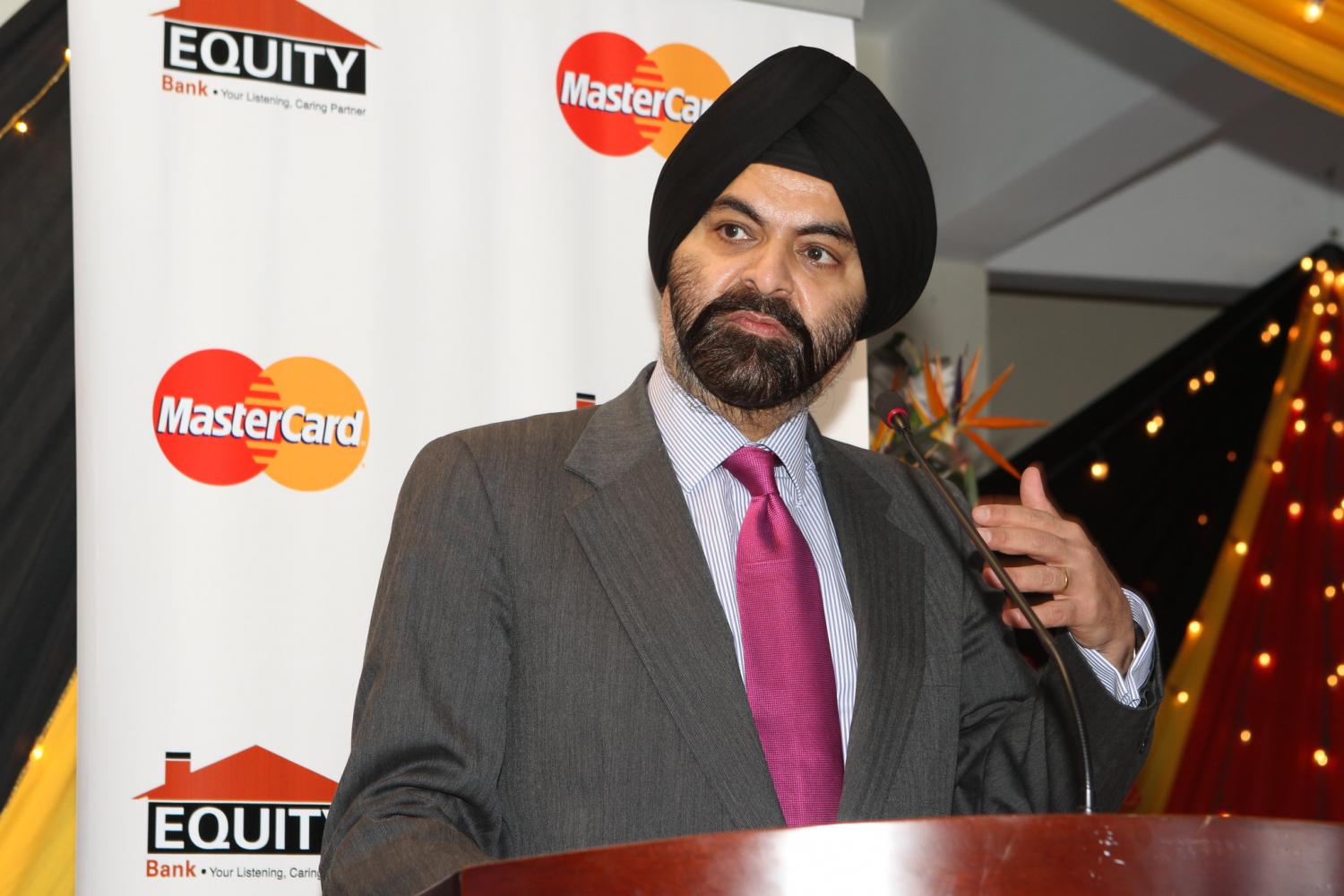
On Friday, Mastercard president and CEO Ajay Banga said out loud what others have been thinking: Businesses can no longer afford to approach climate action as a form of eco-friendly altruism. The potential for catastrophic bottom-line impact is coming into clear focus, and the only way companies can protect themselves is to take steps that reach far beyond their own walls.
Climate action is a matter of survival
Banga, who also sits on Mastercard's board of directors and is among the global finance-sector CEOs attending the World Economic Forum in Davos, published his new climate action manifesto on the company's website under the title, “The Time For Environmental Altruism is Over.”
Just a few years ago, that kind of thinking would have landed on the corporate responsibility universe like a bombshell. After all, Banga explained, companies like Mastercard have already taken many steps to decarbonize internally.
Companies are converting their operations to renewable energy, adhering to green building standards, replacing petrochemicals with alternative products, and zeroing out landfill waste, among many other steps. They are also motivating — or outright dictating — similar changes in their supply chains and consumer value chains. In the arena of climate action, what else is left to do?
Plenty, Banga argues. Climate change is an existential threat. If companies want to continue turning a profit, they cannot simply focus on cleaning up their own mess. They have to act globally, he asserted. They need to reach out and form partnerships that create an impact outside of their own operations, supply chains and consumer webs.
Partnering up to accelerate climate action
A collaborative approach to decarbonization has been building over the past several years, as corporations realize the value of partnering with grassroots environmental groups, government entities, and other businesses for maximum impact.
Mastercard’s new climate action plan takes that strategy and ramps it up another notch through a partnership called the Priceless Planet Coalition.
It’s an interesting mix of partners. On the business side, it includes the financial giants Citibank and Santander U.K., the information and consulting firm IHS Markit, and the mobile banking company Bunq, along with American Airlines and top retailers Saks Fifth Avenue and L.L. Bean.
On the government side are two behemoths of the transportation sector, New York Metropolitan Transport Authority and Transport for London. Rounding out the network are the environmental organizations Conservation International, World Resources Institute and One Tree Planted.
Putting one simple idea in motion
With Bunq and One Tree Planted in hand, the Priceless Planet Coalition has a head start on its first big project, a five-year effort to plant 100 million trees.
One Tree Planted is already involved in a partnership with World Resources Institute and the U.S. Forest Service, which funds specific reforestation projects by pooling $1-per-tree donations into larger sums. The current target regions are North America, Latin America, Africa and Asia.
One Tree Planted also offers a “Million Tree Challenge” for businesses to participate on a larger scale. The companies receive recognition and branding in return for their donations.
On its part, Bunq offers customers a “green” credit card that pledges one new tree for every 100 euros ($111) spent.
Connecting the dots
The other partners have also taken steps in the tree conservation area. Saks, for example, paired up with the sustainable packaging company Emerald Brand in 2016, and L.L. Bean has been working with Trees For the Future since 2007 through the footwear company Oboz.
Meanwhile, part of American Airlines’ sustainability plan involves reducing paperwork in its air cargo operations. That may sound like a minor change, but the impact will be significant, as the company explains:
“Did you know our air cargo industry prints roughly 7,800 tons of paperwork every year? That's 100,000 trees and enough paper to fill 80 747 freighters. That's why we're fully committed to the industry's eAWB initiative. We're dead-set on getting to 100 percent eAWB use from all of our customers.”
By putting all of these pieces together, the Priceless Planet Coalition will enable the participating companies to ramp up their green profile by orders of magnitude.
Climate action and trees
There’s just one drawback with this approach. Planting trees on a massive scale is widely acknowledged to be the least costly and the most effective pathway for capturing and storing excess carbon in the air.
However, until the Earth’s top carbon emitters get serious about renewable energy and stop touting solutions like “cleaner” natural gas and carbon capture technology, Priceless Planet will only accomplish on a grander scale the very situation that Banga warns against: negating carbon emissions without reducing them.
In other words, more trees will enable more fossil fuel production, without accomplishing anything to reduce it.
Priceless Planet could achieve one important step, though. By raising awareness that tree-planting on a massive scale will not stop fossil fuel stakeholders from releasing more carbon into the atmosphere, it could help create momentum for stronger climate action policy on the part of governments.
After all, if even the combined efforts of finance industry giants like Mastercard, Santander and Citibank only add up to a global form of wheel-spinning on climate action, someone has to attack the problem at its root.
Image credit: Mastercard/Flickr

Tina writes frequently for TriplePundit and other websites, with a focus on military, government and corporate sustainability, clean tech research and emerging energy technologies. She is a former Deputy Director of Public Affairs of the New York City Department of Environmental Protection, and author of books and articles on recycling and other conservation themes.














